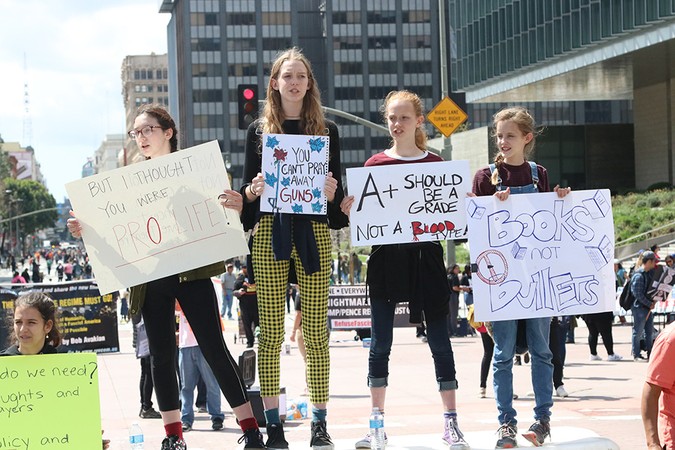The gun debate rhetoric seems to have caused humanity to think the worst of each other. It should not be like this. When discussing tragic and heavy topics—such as how to respond to a tragedy like the Parkland shooting—charity should be always present in viewing our political opponents position. This may lead to a more successful dialogue, because in the end both sides want the same thing: to be safe.
HOW PEOPLE RESPOND TO THE PARKLAND SHOOTING
Those who own guns and either defend or oppose gun control do not do so out of a misguided love of guns. Rather, most gun owners own a firearm because they believe that it will keep them safer.
David French points out in The Atlantic that police can fail—it happened in Parkland. When they fail, French says he must still be responsible to protect his family, which is why he carries a gun. His rural Tennessee setting may seem foreign to a suburban Californian, but this emphasizes why we should understand his point. French—and those like him—are just as saddened by gun violence as anyone else, but do not believe that gun control is the solution.
There is merit to this argument. In Britain, where there is a large degree of gun control, knife crimes continue to rise and homicides have not been curbed by the gun control measures placed there. Pro-gun Americans desire safety just as much as anyone. They rightly believe they must provide their own protection. Thus, calling them murderers for believing such things will not aid productive discussion.
Those who support gun control also want safety. It is reasonable to wish for a change to the status quo when kids are scared to go to school for fear of being shot. It is a reasonable response to a tragedy, like the Parkland shooting, to ban the tool used by the shooter. Supporters of gun control do not have a deep-seated hatred of our Constitution. It is not a guise to confiscate American guns so the government can impose martial law. The desire to ban guns is a gut reaction to a problem that deals with life and death. To think the worst of those who hold these views will not solve the problem or create discussion. It only serves to divide and complicate.
THE PROBLEM OF HARSH RHETORIC
This type of harmful rhetoric emerges from both sides, but it only serves to entrench the opposition in their position—it is not helpful or healthy. It makes us suspicious of neighbors and causes us to view friends as enemies. The hostility it creates is not worth it. An example of this occurred to writer and Las Vegas shooting survivor Lilyanne Rice, who after writing an apolitical article about her experience during the event, was chastised via email for not using her platform to push for gun control. When we attack survivors of massacres for sharing their experience because they do not agree with us, perhaps we need to reevaluate how we conduct the gun control discussion.
Both sides contain reasonable people who simply seek safety. Hostility causes entrenchment of a position and pushes both sides to extreme positions. This is fundamentally unproductive. Productive dialogue finds common ground and works together to find solutions that honor the priorities and concerns of both sides. We can and should advocate for the side we agree with. In our discussions let us engage those we disagree with, with charity for their argument. Doing so may only create small change, but small real change is better than big hypothetical change.







